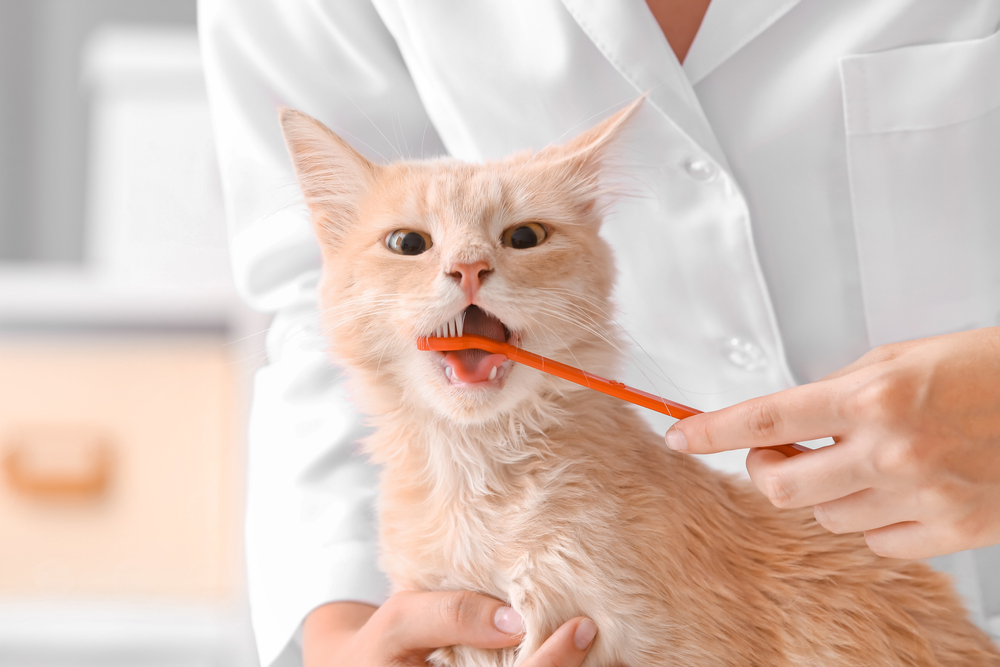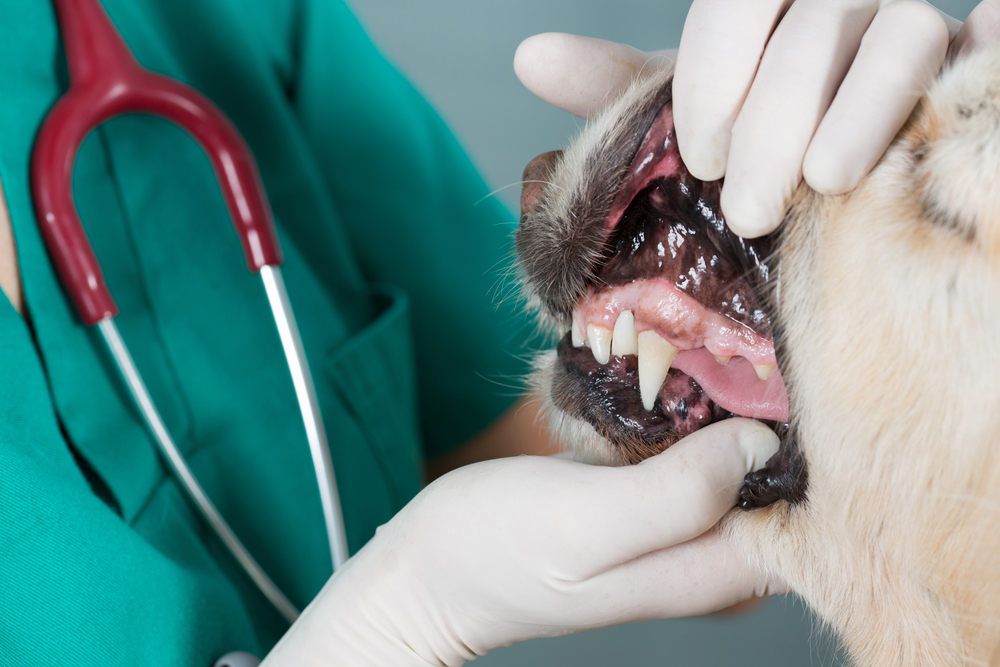Your furry pals require lots of attention, care, toys, walks, and veterinary visits throughout their life to ensure they remain healthy and by your side for as long as possible. Pets are experts at wrapping their owners around their paws, especially when asking for more treats. However, unless you are having a smoochfest with your favorite four-legged companion, you are unlikely to know when they are experiencing problems with their teeth or overall oral health. Pets, especially cats, are masters at hiding signs of illness, stress, or pain, and often subtle changes are the only clue something is wrong. In fact, unpleasant dog or cat breath is an important clue that your pet has dental disease.
Paying regular attention to your pet’s oral health is a vital component of their overall health, because more than 80% of dogs and cats will have oral health problems by the time they reach 3 years of age. During your pet’s annual wellness examination, your veterinarian may recommend a more in-depth dental exam or cleaning. Our Driftwood Animal Hospital team answers common questions about your pet’s dental health.
Question: What is periodontal disease in my pet?
Answer: Periodontal disease is the most common dental condition in pets, and occurs from inflammation and infection of the soft tissue structures around the teeth. Like humans, pets are affected by plaque after each meal. The plaque builds up and hardens into a cement-like tartar that allows harmful bacteria to become trapped in and around your pet’s gumline, and is a common cause of bad breath. However, most pet owners are unaware that bad breath in pets is abnormal and may indicate a more serious medical problem.
Tartar is easily recognized above the gumline, but a professional veterinary examination is needed to identify this dangerous buildup on the tooth roots. Trapped oral bacteria have a direct line to the bloodstream and can travel through the body, affecting your pet’s organs, including life-threatening infections and damage to the kidneys, liver, lungs, heart, and brain.
Q: Why does my pet need a pre-dental examination?
A: Yearly, or more frequent, preventive care exams are vital to ensure your pet remains healthy through all life stages. However, preventive care involves more than vaccinations and parasite control. Your veterinarian will discuss your pet’s history, lifestyle, and home behaviors to develop an overall picture of their health. They will try to perform an oral exam while your pet is awake, although this is often limited, since pets usually won’t hold still long enough for a thorough examination of their mouth. A pre-dental examination does allow your veterinarian to listen to your pet’s heart and lungs, and they may recommend additional tests such as X-rays or blood work to ensure your pet can safely process the anesthesia medications. If your pet has bad breath, swollen gums, tartar, loose teeth, or is experiencing any oral pain, your veterinarian will recommend an anesthetic dental examination and cleaning.
Q: What does my pet’s dental cleaning involve?
A: We understand that pet owners can be scared about their furry pal being anesthetized. However, an anesthetic dental examination and cleaning is the safest, most effective, stress-free method for performing this procedure, and our expert animal care team will closely monitor your pet while our veterinarian cares for their teeth. Additionally, a professional dental cleaning and oral exam may include:
- Intravenous fluids to support their organs and blood pressure during the procedure
- Warming pads and blankets to maintain body temperature
- Dental X-rays to examine teeth below the gumline
- Mapping and charting of their teeth (i.e., probing around each tooth to look for pockets or infection)
- Cleaning with specialized tools, including an ultrasonic scaler
- Polishing with a fluoride-infused polish to prevent plaque buildup
- Extracting loose or damaged teeth
Q: How do I prevent dental disease in my pet?

A: Twice daily brushing of your pet’s teeth at home, along with regular professional veterinary examinations and cleanings, is the gold standard of dental disease care, although the National Pet Dental Health Association says brushing three times a week at home is still beneficial. Develop a consistent brushing routine to keep harmful oral bacteria and tartar at bay, and to prevent painful dental disease. Always use a pet-safe toothpaste approved by the Veterinary Oral Health Council (VOHC), since most human toothpastes contain ingredients that can be deadly to pets. For those pets—especially cats—who will not accept toothbrushing, you can use VOHC-approved dental chews, wipes, rinses, or treats as part of their daily routine.
Our Driftwood Animal Hospital team wants to ensure your pet’s smile is always healthy and sparkling. Call our office if you have any questions about your pet’s dental health, or to schedule a pre-dental cleaning examination.








Leave A Comment